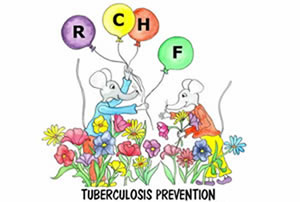
TUBERCULOSIS PREVENTION
Following up on the Cross Border TB conference of lateJune RCHF has continued to educate about the seriousproblems of TB in both Romania and The Republic ofMoldova, plus has developed several new initiatives tohelp TB sufferers also including a cross border TB health-card which is awaiting approval for use at this moment.
Healthy lifestyles September to December program
Eating junk food regularly as many young people do causes obesity and endangers health.
Within the public health education work of RCHF we have collaborated with Romanian Public health authorities for many years and within each year there are health education themes to apply and develop into projects. The Theme used by RCHF from the start of the Autumn school term until December holidays is the Healthy Lifestyle Theme, which has proved popular and interesting to students and parents alike. We developed a PowerPoint presentation about the subject, which includes a visual presentation about the dangers of junk food and obesity along with the healthier options for instance of fresh fruit and home made vegetable salads. The presentation lesson also includes information about the need to exercise regularly and suggests simple ways to achieve this so that your body stays in tip top condition no matter what age group one falls into.
Sadly today all over Europe people die needlessly because of overweight conditions all to often associated with a lack of balanced diet, eating of junk food on a regular basis and lack of daily exercise. Millions of European citizens also suffer from Diabetes often caused by a unhealthy diet. Within RCHF we recommend each person to exercise for at least 30 minutes per day and this can take the form of walking, cycling and by participating in sports. People who are seated in their jobs many hours including those who work in IT need to have regular breaks and in those moments get up and walk around briskly to allow the circulation of body muscles to act again and for the lungs to open up and allow fresh air to enter the human body easier. Breathing exercises are in fact important to anyone who stays either seated or in bed for long periods of time and even a bed bound person can be taught these exercises which are to their direct benefit health wise. The younger a person learns to exercise the healthier they will grow in life!
Even in schools without an overhead projector we can still teach health education subjects via a school laptop and within the lessons ask questions in order to gain valuable feedback from children. In rural schools were there are often no modern facilities we address students direct and provide hand out leaflets also, thus are able to teach any said subject to any class no matter the schools material conditions or location. Within RCHF we believe that all children no matter where they live or their families status should all have an equal chance to sit side by side in class and learn about vital health subjects that will aid them to a healthier lifestyle in future years.
RCHF only educates children in their national language
Here we are unlike many foreign charities, which prefer to use English or French. In our opinion if you are to be fully understood by the students you teach a foreign Country one must speak in the Countries national language. If you do not then clearly many in the class will not fully understand and the lesson will be of only minimal benefit to the students. It may be an easy option for foreign helpers to use their own language, but it has negative consequences for the students being taught.